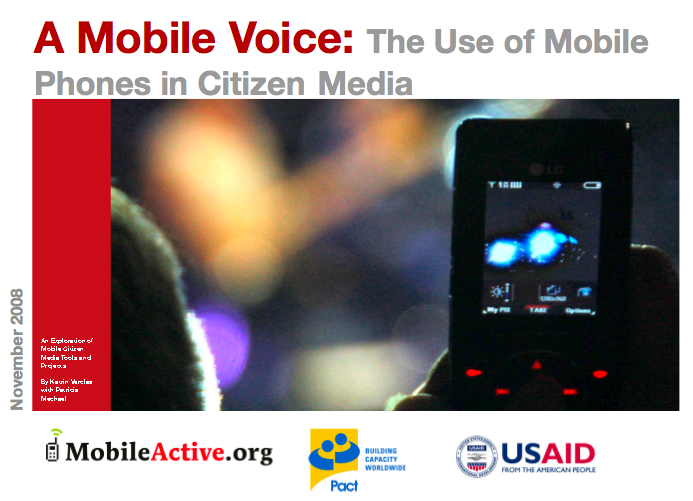The Open Mobile Consortium, a working group of developers and organizations engaged in open source mobile applications for social change, is meeting in New York at UNICEF today and tomorrow. The Open Mobile Consortium was founded at MobileActive08 to build an open source community for collaboration and shared development between relevant organisations engaged in mobile development for social good.
The goal of the meeting is to assess the landscape of tools, and begin to develop a technical roadmap.
The Open Mobile Consortium believes that it is critical to overcome frthe current agmentation in this field, and to align existing projects that are developing and implementing mobile tools. A longer-term vision is to work as an open source consortium, with funding for coordination and project management, as well as code integration, refactoring and producing documentation for training and support.
MobileActive.org will participate in tomorrow's portion of the event, and report back on key discussions.






